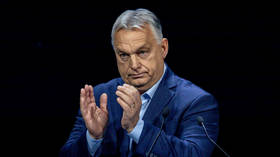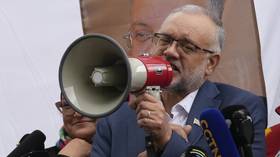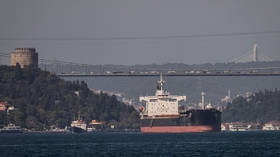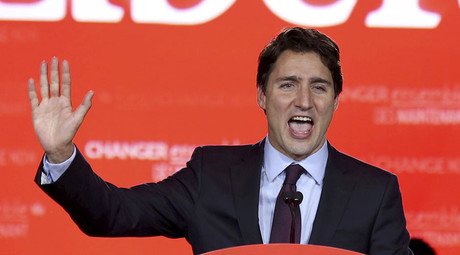TPP 'fundamentally flawed,' should be resisted - UN human rights expert
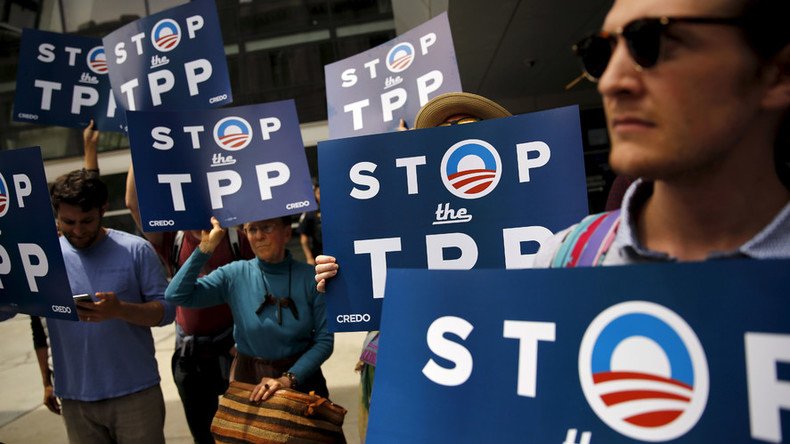
The top United Nations expert on human rights has called on the 12 nations considering the Trans-Pacific Partnership to reject the massive trade agreement since in its current form it "is out of step with today’s international human rights regime.”
Acknowledging global opposition to the Trans-Pacific Partnership (TPP) because of the agreement's "undemocratic pedigree,"Alfred de Zayas, the UN's independent expert on the promotion of democratic and equitable international order, said the largest trade agreement in decades "is fundamentally flawed and should not be signed or ratified unless provision is made to guarantee the regulatory space of States."
"I am concerned that notwithstanding enormous opposition by civil society worldwide, twelve countries are about to sign an agreement, which is the product of secret negotiations without multi-stakeholder democratic consultation," de Zayas said in a statement ahead of a February 4 gathering in New Zealand of trade representatives for the 12 Pacific Rim nations involved in the secretive TPP talks.
“Trade agreements are not ‘stand-alone’ legal regimes, but must conform with fundamental principles of international law, including transparency and accountability," de Zayas said. [Trade agreements] must not delay, circumvent, undermine or make impossible the fulfillment of human rights treaty obligations."
#TPP revealed: Pact details ignite debate over privacy, internet freedom, whistleblowers https://t.co/XQ1LwcZYDzpic.twitter.com/nGil5QPHPz
— RT America (@RT_America) November 6, 2015
De Zayas was referring to indications that the TPP will come with a private tribunal system, or an investor-state dispute settlement (ISDS) process, in which multinational corporate entities will be granted broad powers to challenge sovereign nations' government regulations, rules, actions and court rulings if those laws or policies are perceived as cutting in on intellectual property values and profits.
The trade pact currently involves Australia, Brunei, Canada, Chile, Japan, Malaysia, Mexico, New Zealand, Peru, Singapore, the United States, and Vietnam. These nations together comprise 40 percent of the global economy. Other nations, such as Thailand and Cambodia, have expressed interest in eventually participating in the agreement.
#China vs #TPP: Will Beijing join forces against Trans-Pacific Partnership? http://t.co/5HixswcMqkpic.twitter.com/vhIaGKbWgg
— RT (@RT_com) October 8, 2015
Any economic benefits of the deal will go to corporations, not workers in any of the participating nations, opponents say. Labor unions, among many others, have lined up to oppose the TPP based on concerns over a number of issues, including currency manipulation, environmental and health protections, food safety, pharmaceutical monopolies, offshoring of jobs, internet privacy, government transparency, and local governmental control.
WHO chief raises ‘serious concerns’ over #TPP impact on vital drug prices; harm 3rd world https://t.co/1eg8ZYvBtCpic.twitter.com/TqGegdytAu
— RT America (@RT_America) November 14, 2015
One of the most contentious sections of the TPP is the intellectual property chapter, which has been negotiated away from the public gaze – while major corporations and trade groups have had access and involvement – for the last five and a half years.
Industry powers with access to TPP plans lavish money on Congress http://t.co/2M7xXPi7sk
— RT America (@RT_America) January 18, 2014
“If TPP is ratified, people in the Pacific-Rim countries would have to live by the rules in this leaked text,” said Peter Maybarduk, director of Public Citizen’s Global Access to Medicines Program, following a leaked release of the pact's intellectual property chapter by Wikileaks in October. “The new monopoly rights for big pharmaceutical firms would compromise access to medicines in TPP countries. The TPP would cost lives.”
Leaked drafts of TPP negotiations have suggested that corporations would be allowed to sue governments in private courts over lost profits due to regulation, elevating corporate entities to the status held by sovereign nations.
Obama signs bill giving himself fast-track powers for trade deals http://t.co/WVr0sxiihCpic.twitter.com/IS6ESADTps
— RT (@RT_com) June 30, 2015
De Zayas said the ISDS system would be "fundamentally imbalanced and unjust, since investors can sue governments whereas governments cannot sue investors before these ad hoc tribunals."
"Trade and investment disputes can be settled under the rule of law by recourse to national jurisdictions and/or State-to-State mechanisms," said the UN human rights expert.
#TPP tips: What is the Trans-Pacific Partnership and why you should care http://t.co/VfMZzIh8ZNpic.twitter.com/veTcOJLw9O
— RT (@RT_com) October 5, 2015
Should the TPP go into effect, "its compatibility with international law should be challenged before the International Court of Justice," de Zayas said, adding that "if a public referendum were held in all twelve countries concerned, it will be solidly rejected."
The UN expert also criticized the "outdated" model and processes of modern trade agreements like TPP, which he said should be replaced by "a new generation of holistic trade agreements for the 21st century, which would incorporate human rights and development into their provisions."




